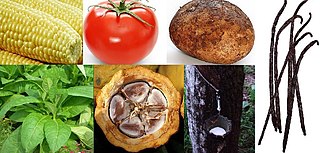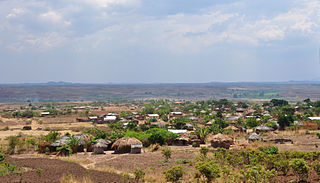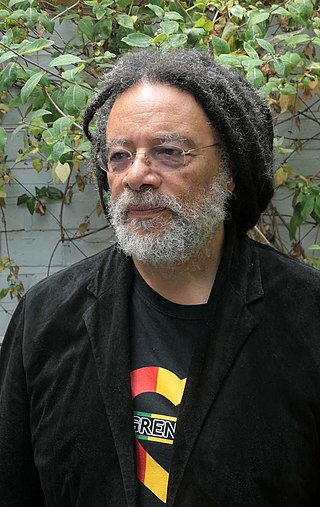
The Atlantic slave trade or transatlantic slave trade involved the transportation by slave traders of enslaved African people, mainly to the Americas. The outfitted European slave ships of the slave trade regularly used the triangular trade route and its Middle Passage, and existed from the 16th to the 19th centuries. The vast majority of those who were transported in the transatlantic slave trade were from Central and West Africa who had been sold by West African slave traders to European slave traders, while others had been captured directly by the slave traders in coastal raids; European slave traders gathered and imprisoned the enslaved at forts on the African coast and then brought them to the Americas. Except for the Portuguese, European slave traders generally did not participate in the raids because life expectancy for Europeans in sub-Saharan Africa was less than one year during the period of the slave trade. Portuguese coastal raiders found that slave raiding was too costly and often ineffective and opted for established commercial relations.
A multinational corporation is a corporate organization that owns and controls the production of goods or services in at least one country other than its home country. Control is considered an important aspect of an MNC to distinguish it from international portfolio investment organizations, such as some international mutual funds that invest in corporations abroad simply to diversify financial risks. Black's Law Dictionary suggests that a company or group should be considered a multinational corporation "if it derives 25% or more of its revenue from out-of-home-country operations".

Triangular trade or triangle trade is a historical term indicating trade among three ports or regions. Triangular trade usually evolves when a region has export commodities that are not required in the region from which its major imports come. Triangular trade thus provides a method for rectifying trade imbalances between the above regions.

The Columbian exchange, also known as the Columbian interchange, was the widespread transfer of plants, animals, precious metals, commodities, culture, human populations, technology, diseases, and ideas between the New World in the Western Hemisphere, and the Old World (Afro-Eurasia) in the Eastern Hemisphere, in the late 15th and following centuries. It is named after the Italian explorer Christopher Columbus and is related to the European colonization and global trade following his 1492 voyage. Some of the exchanges were purposeful while others were unintended. Communicable diseases of Old World origin resulted in an 80 to 95 percent reduction in the number of Indigenous peoples of the Americas from the 15th century onwards, most severely in the Caribbean. The cultures of both hemispheres were significantly impacted by the migration of people, both free and enslaved, from the Old World to the New. European colonists and African slaves replaced Indigenous populations across the Americas, to varying degrees. The number of Africans taken to the New World was far greater than the number of Europeans moving to the New World in the first three centuries after Columbus.

The earliest humans were hunter gatherers who were living in small, family groupings. Even then there was considerable trade that could cover long distances. Archaeologists have found that evidence of trade in luxury items like precious metals and shells across the entirety of the continent.

The Slave Coast is a historical name formerly used for that part of coastal West Africa along the Bight of Biafra and the Bight of Benin that is located between the Volta River and the Lagos Lagoon. The name is derived from the region's history as a major source of African people sold into slavery during the Atlantic slave trade from the early 16th century to the late 19th century.

Trans-Saharan trade is trade between sub-Saharan Africa and North Africa that requires travel across the Sahara. Though this trade began in prehistoric times, the peak of trade extended from the 8th century until the early 17th century CE. The Sahara once had a different climate and environment. In Libya and Algeria, from at least 7000 BCE, pastoralism, large settlements and pottery were present. Cattle were introduced to the Central Sahara (Ahaggar) between 4000 to 3500 BCE. Remarkable rock paintings in arid regions portray flora and fauna that are not present in the modern desert.

In world systems theory, the core countries are the industrialized capitalist or imperialist countries, which depend on appropriation from peripheral countries and semi-peripheral countries. Core countries control and benefit from the global market. They are usually recognized as wealthy states with a wide variety of resources and are in a favorable location compared to other states. They have strong state institutions, a powerful military and powerful global political alliances.
A plantation economy is an economy based on agricultural mass production, usually of a few commodity crops, grown on large farms worked by laborers or slaves. The properties are called plantations. Plantation economies rely on the export of cash crops as a source of income. Prominent crops included Red Sandalwood, cotton, rubber, sugar cane, tobacco, figs, rice, kapok, sisal, and species in the genus Indigofera, used to produce indigo dye.

Paul Gilroy is an English sociologist and cultural studies scholar who is the founding Director of the Sarah Parker Remond Centre for the Study of Race and Racism at University College London (UCL). Gilroy is the 2019 winner of the €660,000 Holberg Prize, for "his outstanding contributions to a number of academic fields, including cultural studies, critical race studies, sociology, history, anthropology and African-American studies".

This is a timeline of the history of international trade which chronicles notable events that have affected the trade between various countries.

Slavery in the British and French Caribbean refers to slavery in the parts of the Caribbean dominated by France or the British Empire.
Transnationalism is a research field and social phenomenon grown out of the heightened interconnectivity between people and the receding economic and social significance of boundaries among nation states.

Regional Integration is a process in which neighboring countries enter into an agreement in order to upgrade cooperation through common institutions and rules. The objectives of the agreement could range from economic to political to environmental, although it has typically taken the form of a political economy initiative where commercial interests are the focus for achieving broader socio-political and security objectives, as defined by national governments. Regional integration has been organized either via supranational institutional structures or through intergovernmental decision-making, or a combination of both.

The Atlantic World comprises the interactions among the peoples and empires bordering the Atlantic Ocean rim from the beginning of the Age of Discovery to the early 19th century. Atlantic history is split between three different contexts: trans-Atlantic history, meaning the international history of the Atlantic World; circum-Atlantic history, meaning the transnational history of the Atlantic World; and cis-Atlantic history within an Atlantic context. The Atlantic slave trade continued into the 19th century, but the international trade was largely outlawed in 1807 by Britain. Slavery ended in 1865 in the United States and in the 1880s in Brazil (1888) and Cuba (1886). While some scholars stress that the history of the "Atlantic World" culminates in the "Atlantic Revolutions" of the late 18th early 19th centuries, the most influential research in the field examines the slave trade and the study of slavery, thus in the late-19th century terminus as part of the transition from Atlantic history to globalization seems most appropriate.

Slavery has historically been widespread in Africa. Systems of servitude and slavery were common in parts of Africa in ancient times, as they were in much of the rest of the ancient world. When the trans-Saharan slave trade, Red Sea slave trade, Indian Ocean slave trade and Atlantic slave trade began, many of the pre-existing local African slave systems began supplying captives for slave markets outside Africa. Slavery in contemporary Africa is still practised despite it being illegal.

Crime in Afghanistan is present in various forms, and includes the following: corruption, contract killings or assassinations, bombings, kidnapping, drug trafficking, money laundering, black marketeering, and ordinary crimes such as theft and assault.
Proto-globalization or early modern globalization is a period of the history of globalization roughly spanning the years between 1500 and 1800, following the period of archaic globalization. First introduced by historians A. G. Hopkins and Christopher Bayly, the term describes the phase of increasing trade links and cultural exchange that characterized the period immediately preceding the advent of so-called "modern globalization" in the 19th century.
The word Nagos refers to all Brazilian Yoruba people, their African descendants, Yoruba myth, ritual, and cosmological patterns. Nagos derives from the word anago, a term Fon-speaking people used to describe Yoruba-speaking people from the kingdom of Ketu, Toward the end of the slave trade in the 1880s, the Nagos stood out as the African group most often shipped to Brazil. The Nagos were important to the history of the slave trade at that time in the 19th century, as Brazil requested more enslaved persons as demand for products from this region grew and harsh conditions on plantations entailed a high turnover.

Economic history of Ghana details the economic situation of Ghana since pre-colonial times to date.














